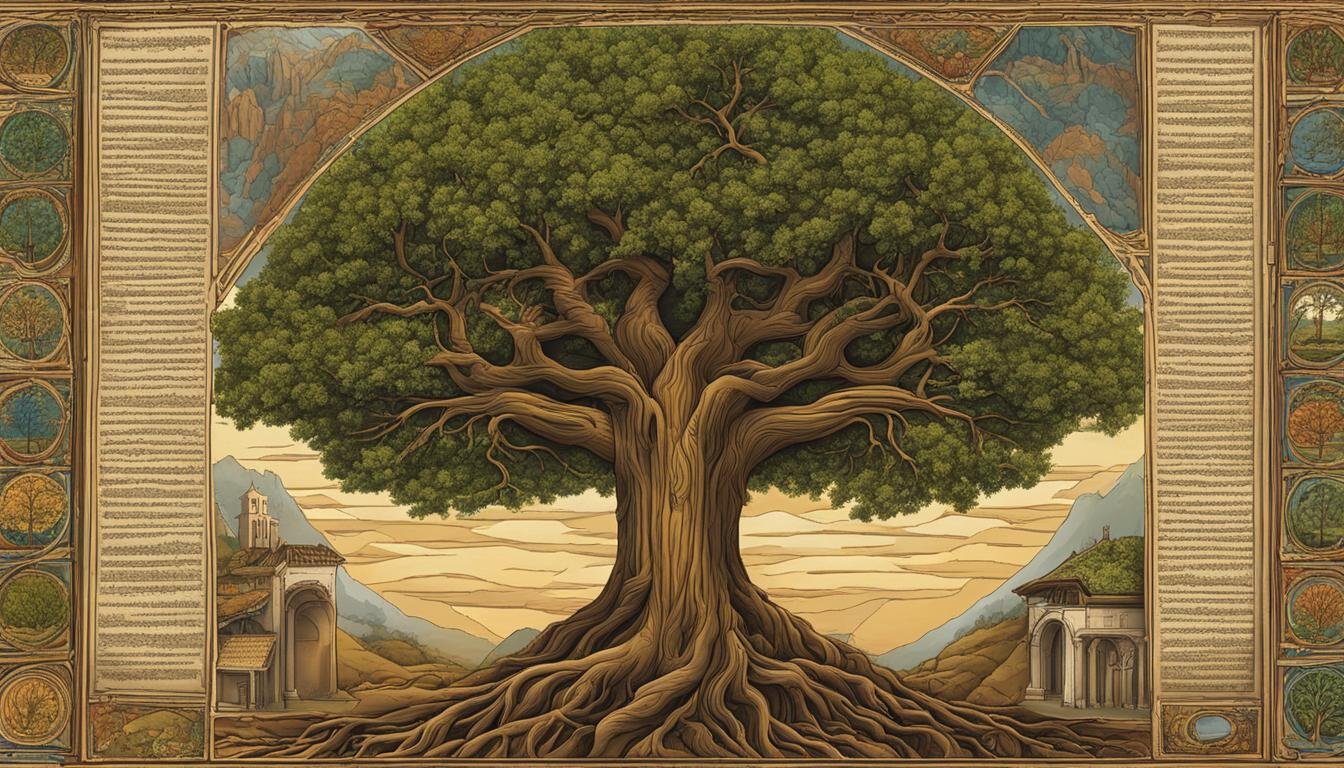The Bible is a collection of sacred texts that holds profound significance for those within the Christian faith. It is divided into two major sections: the Old Testament and the New Testament. The Old Testament consists of 39 books, while the New Testament consists of 27 books, totaling 66 books in the Bible. This composition of books highlights the birth of Jesus and encompasses a variety of literary styles, including historical accounts, poetry, letters, and more. Various Christian traditions may have additional books in their respective canons, leading to a total of around 263 biblical books in some versions of the Bible.
Key Takeaways
- The Bible consists of a total of 66 books, divided into the Old Testament and the New Testament.
- The Old Testament contains 39 books, while the New Testament contains 27 books.
- Additional books may be included in some versions of the Bible based on different Christian traditions.
- The total number of biblical books can reach around 263 in certain versions, considering additional texts such as the Apocrypha and Talmud tractates.
- The Bible encompasses various literary styles, providing a rich and diverse collection of sacred texts.
The Origin and Organization of the Bible’s Books
The Bible, a sacred text with profound importance to Christians, is composed of various books that are divided into the Old Testament and the New Testament. The origin of these books can be traced back to ancient times, with different canons shaping their organization.
The Old Testament, also known as the Hebrew Bible, is based on the Jewish canon. It consists of different types of books, including historical narratives, wisdom literature, and prophetic writings. These texts hold significant religious and historical value for Judaism, providing insights into their beliefs, traditions, and historical events.
On the other hand, the New Testament focuses on the life, teachings, death, and resurrection of Jesus Christ. It is a central component of Christian canon, which varies across different denominations. The New Testament comprises the four Gospels, the letters of the apostles, and the book of Revelation. Each book serves a unique purpose and contributes to the overall message of Christianity.
Therefore, the organization of the Bible’s books differs between the Jewish and Christian canons, resulting in variations in the total number of books. While the Jewish canon consists of 24 books, the Christian canon includes an additional 12 books, resulting in a total of 39 books in the Old Testament. The New Testament remains constant with 27 books across different Christian denominations. The diversity in the origins and organization of these books adds depth and richness to the Bible’s teachings.
The Hebrew Bible
The Old Testament, which forms the Hebrew Bible, is regarded as sacred by Jews. It consists of books that have been passed down through generations, reflecting the history, laws, and religious teachings of the Jewish people. The Hebrew Bible is organized into three sections: the Torah, the Nevi’im (Prophets), and the Ketuvim (Writings).
| Section | Books |
|---|---|
| Torah | Genesis, Exodus, Leviticus, Numbers, Deuteronomy |
| Nevi’im | Joshua, Judges, Samuel, Kings, Isaiah, Jeremiah, Ezekiel, Minor Prophets |
| Ketuvim | Psalms, Proverbs, Job, Song of Solomon, Ruth, Lamentations, Ecclesiastes, Esther, Daniel, Ezra-Nehemiah, Chronicles |
This categorization provides a framework for understanding the diverse literary genres and themes within the Hebrew Bible. Each book within these sections holds particular significance and contributes to Jewish religious practices and beliefs.
The Diversity of Biblical Texts
The Bible is not only comprised of its canonical books but also encompasses a broad spectrum of texts that offer unique insights, meanings, and historical significance. In addition to the traditional books, there are various writings that provide a deeper understanding of biblical teachings.
Within Jewish collections, such as the Talmud, there are additional texts that expand upon the teachings found in the Hebrew Bible. These texts, known as Talmud tractates, provide valuable commentary and interpretations of biblical concepts.
Furthermore, there have been exciting discoveries of ancient writings that are relevant to biblical topics but were not included in the traditional canons. These newly discovered writings, often referred to as Biblical Apocrypha, have gained considerable attention and significance in contemporary times. They shed light on the cultural and historical context surrounding biblical events, offering valuable insights into the religious and social beliefs of the time.
When considering the inclusion of Talmud tractates and the newly discovered writings, the total number of biblical books could reach approximately 263. This diverse range of texts serves as a testament to the vastness and richness of biblical literature, ensuring that there is always something new to discover and explore within the sacred texts of the Bible.
FAQ
How many books are there in the Bible?
The Bible is composed of 66 books in total, with 39 books in the Old Testament and 27 books in the New Testament.
What is the origin and organization of the Bible’s books?
The Old Testament, also known as the Hebrew Bible, is based on the Jewish canon and contains sacred scriptures of Judaism. The New Testament focuses on the life and teachings of Jesus Christ. The organization of the books may vary across different Christian denominations.
Are there other texts beyond the canonical books in the Bible?
Yes, there are additional texts that provide further insights into biblical teachings. Jewish collections, such as the Talmud, include additional writings. There are also newly discovered ancient writings, known as Biblical Apocrypha, which have gained significance in contemporary times.

I’m Benjamin, a passionate spiritual seeker and creator of Verses and Prayers. Alongside my girlfriend Emma and our pet lizard Mulle, I cherish family life, enjoy exploring new places, and am deeply involved in my church community. My love for reading and singing biblical verses inspires every aspect of my journey.

